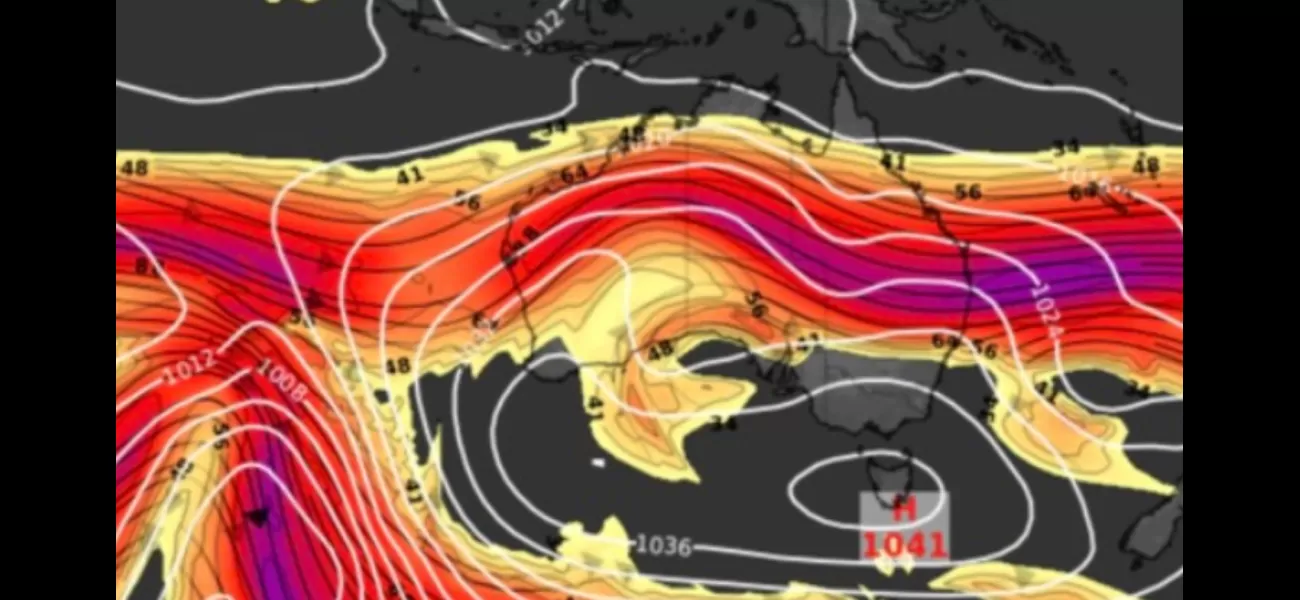New cold front coming with 'blocking' high pressure system causing chilly temperatures.
Temperatures in a city will have a hard time rising above freezing this week.
June 30th 2024.

This week, our friends down under in Australia will be braving the chilly weather as a strong cold front settles in across the country. The southeastern region, in particular, will experience lower than average temperatures for both daytime and nighttime. This is all thanks to a high-pressure system making its way through the Great Australian Bight following the cold front that passed through over the weekend.
It's not uncommon to see high-pressure systems move in after a cold front, but this one is a bit different. Meteorologists are calling it a "blocking high" because it's expected to linger and bring about a series of clear, sunny days. However, this also means that Tasmania, Victoria, and southern New South Wales will have to endure cold, frosty nights for the next few days. In fact, Launceston is predicted to reach below zero degrees for seven consecutive mornings.
Moving up north to Queensland and northern New South Wales, the high-pressure system is causing strong south-easterly winds to blow towards the coast. This is causing an increased chance of daily showers and creating some serious ocean swells. Meanwhile, in the northern parts of Australia, the high-pressure system is bringing warmer temperatures due to the increase in wind speed. However, this also poses a higher risk for bushfires as the season officially begins.
As for South Australia and Western Australia, the high-pressure system is changing the game. The low-pressure systems and cold fronts that are expected to pass through this week will bring heavier and longer bouts of rain than usual. This could potentially lead to some much-needed relief for these regions.
Overall, Australians are bracing themselves for a chilly week ahead with some parts of the country experiencing extreme temperatures, while others are facing potential showers and increased fire danger. Stay warm and stay safe, mates!
It's not uncommon to see high-pressure systems move in after a cold front, but this one is a bit different. Meteorologists are calling it a "blocking high" because it's expected to linger and bring about a series of clear, sunny days. However, this also means that Tasmania, Victoria, and southern New South Wales will have to endure cold, frosty nights for the next few days. In fact, Launceston is predicted to reach below zero degrees for seven consecutive mornings.
Moving up north to Queensland and northern New South Wales, the high-pressure system is causing strong south-easterly winds to blow towards the coast. This is causing an increased chance of daily showers and creating some serious ocean swells. Meanwhile, in the northern parts of Australia, the high-pressure system is bringing warmer temperatures due to the increase in wind speed. However, this also poses a higher risk for bushfires as the season officially begins.
As for South Australia and Western Australia, the high-pressure system is changing the game. The low-pressure systems and cold fronts that are expected to pass through this week will bring heavier and longer bouts of rain than usual. This could potentially lead to some much-needed relief for these regions.
Overall, Australians are bracing themselves for a chilly week ahead with some parts of the country experiencing extreme temperatures, while others are facing potential showers and increased fire danger. Stay warm and stay safe, mates!
[This article has been trending online recently and has been generated with AI. Your feed is customized.]
[Generative AI is experimental.]
0
0
Submit Comment





